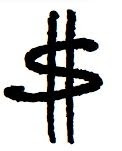The best source of material on competitions is through your local writers centre or in the latest edition of The Australian Writer's Marketplace available from the Queensland Writers Centre. It can't possibly have everything, but it runs close. There's also a lot of other information there which you might find useful.
Bear in mind that entering a competition is, by it's nature competitive. You have a greater chance of getting published than you do of winning a competition.
And sometimes good material doesn't win, but sometimes it's on the 'no' or 'maybe' pile because it's poorly constructed, unoriginal, uninteresting, badly written, under-edited, boring, the same as all the other entries, or not what the particular competition is about. Or it's the work of an undiscovered genius and the judges are fools who should not be let loose with blue pencils.
A note about conditions:
When you enter competitions it's as well to look at the conditions carefully and decide what you think is all right for you and what you think isn't.
I had a note from a writer about the conditions of a prize which read in part:
I assign the copyright in my entry to the [the organisers].
And
-
You agree that the [organisers] can copy, edit and publish your entry (including using quotations or extracts from your entry) for the purposes of the [organisers] and that no fee will be payable to you for this use.
It's up to you, of course, what you sign, but it's as well to know at assigning rights means you're giving over copyright (better to licence the work which means it's for a specified use and for a specified time). The copyright holder is the one who decides what can and can't be done with a work. You should check out the legal implications of what you sign. It's not up to other people to tell you (including me. I'm not a lawyer.)
The second paragraph also seems to be too generous to the organisers for my tastes. I'd be a bit wary of unknown editors being given all this freedom without the writer being able to object.
It's up to you, but think carefully about offering your work when these sorts of conditions apply. It might be that it's a fund-raiser and all very innocent, but exercise your judgement. Sometimes I'm quite happy to give away all sorts of things in a good cause - and sometimes I'm not. Guideline: Choose rather than be suckered.
Tips: when entering a prize or competition...
1. It’s competitive - so compete: put in your best stuff. Don’t think that your third best stuff will be okay.
2. Put in material that suits the thing you’re entering ie do some research on previous winners. (For the PressPress Chapbook Award reading a couple of chapbooks and trawling through the site would be A Good Idea.)
3. Read the conditions and decide if they suit you.
4. Follow the instructions eg unbound means unbound, etc
A great prize
I would say this is a great prize because my PressPress runs it, but it is anyway.
2010 PressPress Chapbook Award - this is an annual award which began in 2008. Carolyn Fisher from Tasmania the inaugural award with The Unsuspecting Sky. In 2009 WA writers Scott-Patrick Mitchell won with his Songs for the ordinary mass. This year the prize is worth $600 (AUD) and publication with PressPress. You can go to the PressPress site for the award conditions. Poetry only of course.
Some other good competitions
(but you still have to make up your own mind and read the conditions):
The ABC Fiction Award 'Recognising emerging writers'
Allen & Unwin runs competitions - check out their site.
Arvon International Poetry Competition. First prize is five thousand pounds.
The Australian Centre Literary Awards. Part of the University of Melbourne.
Griffin Award The famous award is $5000 for a new playscript. The Griffin has long been a force in Australian theatre.
Island Magazine which is one of Australia's premier literary magazines also runs a couple of prestigious competitions.
Poets Union runs the Broadway Prize.
PressPress Chapbook Award prize for a short manuscript. Prize includes publication of a chapbook.
Funding sources
If you can manage to make your project self-funding, so much the better. Applying for funding is time-consuming and your project must conform to criteria laid down by someone else. There are many sources of funding other than these, but this is a good enough start.
A word to the wise though, be very well-prepared if you are going to apply. Take the guidelines very seriously.
You might also think about being inventive and consider that there might be ways to generate income other than waiting for someone to give it to you.
Australia Council for the Arts Ozco is the federal government's main funding organisation.
All the state governments fund the arts, some generously, some not. They all have different guidelines and place different importance on different things. In NSW it’s the NSW Ministry for the Arts.
A good source of information about grants, prizes and other opportunities for artists is the Regional Arts NSW e-Bulletin: a free monthly online publication. Sign up for at the Regional Arts NSW website at www.regionalartsnsw.com.au
For more sources of funding etc this is a great place to go:


No comments:
Post a Comment